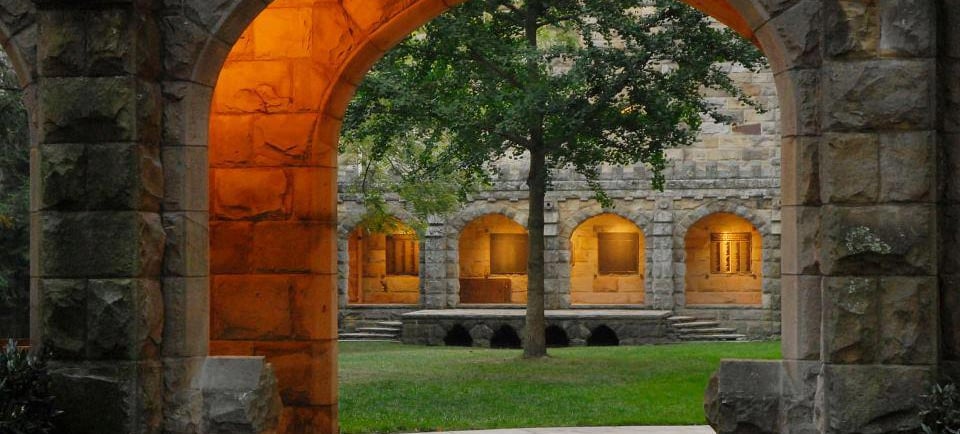Add your promotional text...
Why College?
An educated mind cannot be limited to study in the theoretical. Learning requires an understanding of practice and possibility beyond academic cannon.
5/18/20254 min read


Why College? Or, How should we prepare children for adulthood?
I entered college in the fall of 1978. Four siblings preceded me. I always assumed I was going to college. High school had not been an academic challenge. It took little effort on my part to gain academic honors. I quickly learned that Sewanee, the University of the South, was a different story.
_________________________________________________________________________________________________
I struggled my first semester but improved enough to stay north of my scholarship requirements
at the end of the fall.
I, like all Sewanee students, had to study hard just to succeed. I struggled my first semester but improved enough to stay north of my scholarship requirements at the end of the fall. I improved academically every semester through my Senior year. I was not an honor student but learned to be a successful one.
A College Experience Based on Fit
Sewanee was a great fit. The bucolic setting, academic tradition, and relationship oriented community provided an ideal four years. The student body was predominantly Southern and significantly conservative. I was naturally opinionated and liberal and not afraid to engage in energetic debates. It took me a while to learn how to argue when the only supporter of the Great Society. I became entertaining fodder for the Reaganite majority. Despite the conservative student body, everyone valued exploring academic thought from all perspectives. I was respected if my thought was reasoned.
_______________________________________________________________________________________________
I wasn’t intimidated, just thankful. College opened a world of possibility for me.
My secondary school experience had been with many who were far more intelligent than I and that opportunity continued in college. I wasn’t intimidated, just thankful. College opened a world of possibility for me. It developed reading and learning habits that continue to benefit my intellectual growth to this day. The social and academic experience provided the avenue for a life of opportunity, service, and faith.
A Different Perspective on Success
Much of my tenure as an educator was spent in schools that were predominately working class or poor. I remember a conversation with a student I perceived to be intelligent. Every morning before the bell, students would come to my room for conversation among themselves or with me. I asked this young man if he had considered college whereupon he shrugged his shoulders and said no. I tried to explain how great my four years had been, but his mindset was to find a decent job after his senior year in high school. I didn’t know if he had the resources for college, but he had little interest.
________________________________________________________________________________________________
If students had interest in manual or skilled labor, educators were found discouraging that pursuit and
employment was pushing a bias toward a college degree.
This was in the 1980s when neoliberal thought was moving the public schools away from meaningful preparation for vocational training and toward precollege curricula focused on the information economy. If students had interest in manual or skilled labor, educators were found discouraging that pursuit and employment was pushing a bias toward a college degree.
Misbegotten Priviledge
That conversation I had with that young man was colored by my privileged perspective. I did not yet understand that my outlook was dominating public school policy and cutting off meaningful opportunities that did not require college. Skilled labor was either going toward a required undergraduate degree or losing its prestige. I saw many talented students, like that young man, leave high school with little sense of purpose.
______________________________________________________________________________________________
There is significant debate today about the dearth of opportunity for young people as they enter adulthood.
There is significant debate today about the dearth of opportunity for young people as they enter adulthood. Despite the increase of college graduates, they still represent less than 40% of American adults. There is greater interest in redeveloping vocational opportunities in secondary school, but due to the growing technology sector, policy makers are not sure what this should look like.
Information or Opportunity
In this debate over what should be taught in school, educators and policy makers spend far too much time putting limits on curriculum focusing on the “basics” such as reading and math followed by a college preparatory model. There is limited reflection on the impact this information age has had on types of jobs with little thought on the need for change within schools.
_____________________________________________________________________________________________
Focusing on content as information without a connection to student relevance results in
an ambivalence to learning.
As a teacher, I learned that student interest is the key to motivation. Focusing on content as information without a connection to student relevance results in an ambivalence to learning. Therefore, if we want vocational training to reinvigorate student learning, it is important to give students opportunities to explore activities using their hands, building models, and exploring the outdoors at a very early age.
Vision Breeds Success
Successful students develop a vision for possibilities through experiences that arouse their curiosity. This process requires student initiative not compliant instruction. Once young children are exposed to possibilities that provide individual meaning, then opportunities for a variety of specific skills introduced in secondary school become relevant to their interests as they move toward adulthood. A four year college degree can play a role in this, but so can community college, apprenticeships, and internships that put young adults in the work force right away.
____________________________________________________________________________________
Learning needs to incorporate reason, relationships, and possibility.
The cultural understanding of an educated mind needs to be far more diverse than schooling. Learning needs to incorporate reason, relationships, and possibility. To serve this purpose higher education must overcome the instructional redundancy that leaves diverse intellectual perspectives behind. I matriculated into a traditional white collar perspective that served a limited number of professional or clerical jobs. Much of today’s “gig economy” has developed to serve that professional class. There are many young people like the young man I taught who are not only left to see themselves as inadequate intellectually, but without purpose.
Beyond the Theoretical
Many universities are facing an existential struggle today because they are unable or unwilling to embrace the intellectual contribution that comes with experience beyond the theoretical. This has led to a K-12 apparatus that serves this narrow definition of academic learning while having little alternative for students who are unable to conform to this learning construct. Yes, we must continue to pursue a deep understanding of history, the arts, and the sciences, but we also need to value learning that leads to practical application and a meaningful life.
© Paul A Bonner
